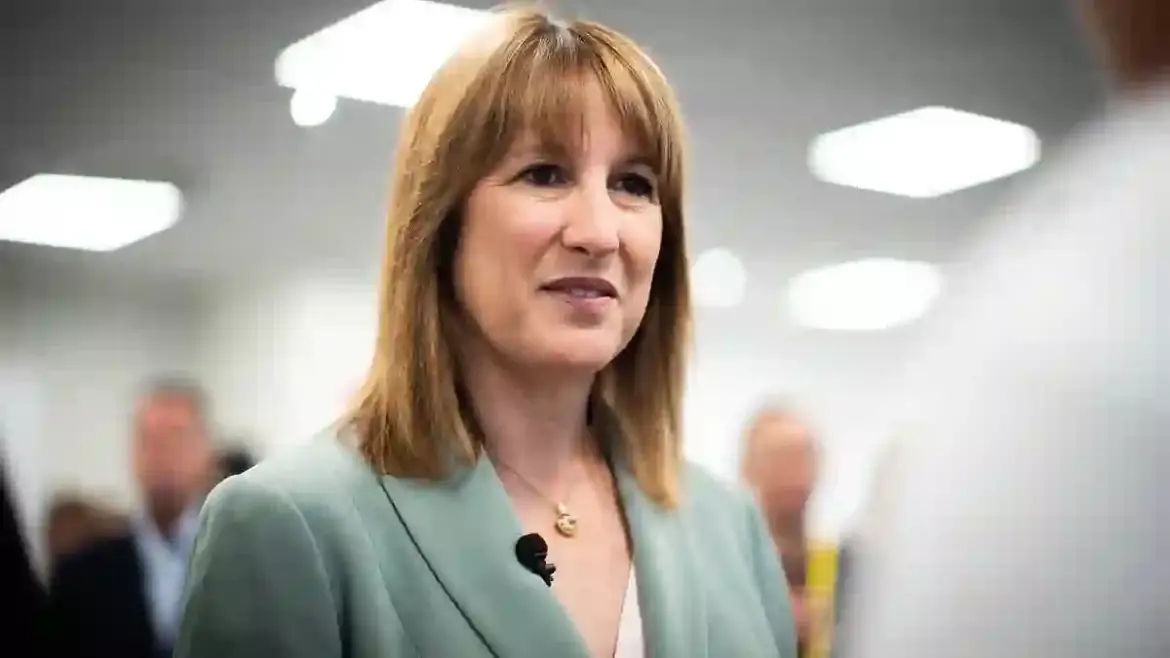Rachel Reeves may be heading into a storm this autumn as fears mount over a potential shortfall in the UK’s public finances.
Analysts are warning that the Chancellor could be forced to find billions more than expected, largely due to a likely downgrade in productivity forecasts.
Productivity, which measures output per worker, is central to government revenue estimates.
Any slip could leave Ms Reeves scrambling for extra funds—possibly as much as £9 billion, or even more.
Allan Monks, UK economist at JPMorgan, told the Financial Times that even a small 0.1 or 0.2 per cent cut in productivity projections could create a fiscal hole between £9 billion and £18 billion.
“We don’t know precisely what the Office for Budget Responsibility will say on productivity, but indications point to a downgrade,” one Treasury official explained to the paper.
Productivity Concerns Mount
The latest Office for National Statistics (ONS) figures already paint a worrying picture.
Productivity has fallen in the second quarter of this year compared with the same period last year.
Analysts say this downgrade dramatically increases the chances of Ms Reeves introducing major tax hikes in the upcoming Budget.
The total fiscal shortfall could reach “tens of billions” of pounds, possibly up to £30 billion, according to insiders familiar with the Treasury’s planning.
Political Blame Game Intensifies
Expect Ms Reeves to point fingers at the previous Conservative government for the looming budget gap.
But the Tories are fighting back, claiming that she has a habit of blaming others.
Shadow Chancellor Sir Mel Stride commented that any downgrade would be down to the Chancellor’s “economic mismanagement” and accused her of deflecting responsibility: “Every time the numbers don’t add up, Rachel Reeves blames someone else.”
Even within Labour circles, confidence in Ms Reeves appears to be wobbling.
Keir Starmer is reportedly building his own Treasury team inside Downing Street, reflecting market unease over the Chancellor’s handling of the economy.
Tax Hikes Remain on the Table
Despite announcing £40 billion in tax increases in last year’s Budget, Ms Reeves has not ruled out another round of tax rises this autumn.
A HM Treasury spokesperson said the department “will not speculate on the forecast” but reaffirmed a commitment to “keeping taxes for working people as low as possible.”
Jobs Are Squeezed as Public Sector Expands
While private businesses feel the pinch, public sector employment continues to swell.
Since Labour’s last Budget, more than 150,000 jobs have been lost, but the public workforce has grown, with taxpayer money flowing into the state.
ONS data revealed that last month alone saw 8,000 jobs vanish, bringing the total losses since the last Budget to 153,000.
Experts are warning that the UK could be heading toward a 1980s-style unemployment crisis, fueled by concerns over Labour’s workers’ rights bill and potential tax hikes in November.
Meanwhile, public sector employment has climbed to 6.2 million—the highest since 2011—including a record four million in central government and 2.1 million in the NHS.
Private sectors, such as retail, have struggled, with 97,000 jobs lost over the past year, hitting a record low of 2.8 million employees.
Sir Mel Stride summed it up bluntly: “Labour is using higher taxes to grow the state, not the economy. Britain doesn’t need a bigger government—it needs a stronger private sector.”
What Lies Ahead?
With productivity under scrutiny, the private sector contracting, and public finances under pressure, the coming Budget could be one of the toughest tests for Rachel Reeves yet.
Whether she chooses to raise taxes again or find alternative measures, the stakes for the economy—and ordinary families—have never been higher.
